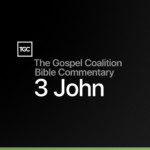The Pastor’s Toolkit is an ongoing series of practical resources for pastors, particularly focused on preaching and leadership. Find even more resources for pastors at our TGC Pastors page.
The Protestant Reformation advanced largely by the work of preaching, and it elevated preaching to a renewed prominence in public worship. John Calvin, known today primarily as a systematic theologian, is a powerful example of Reformation preaching.
He was fundamentally a preacher of the gospel, delivering more than 4,000 sermons in Geneva with his printed sermons in wide demand. Although they’ve been largely overlooked in the past couple of centuries, Calvin’s sermons show the pastor as he really lived and breathed. As T. H. L. Parker wrote, “The center of his pastoral work, around which all else resolved, was the preaching of the gospel.”
I’ve spent the past couple of years reading Calvin’s Sermons on 1 Timothy, deciphering the English translation of 1579 and updating the language to make these powerful sermons more accessible to readers today. They are rich examples for preaching today, as they reveal a lively pastor with a deep personal interest in his people, a passion for their faithfulness, a yearning for congregational adherence to God’s Word, and a zeal for taking the gospel to the nations.
Here are eight lessons I’ve drawn from Calvin’s preaching on 1 Timothy:

1. Focus on Scripture itself.
You know what a preacher really thinks of the Bible by how he preaches. Does he need to look elsewhere for inspiration and power, or does he preach the Scriptures themselves? Calvin was consumed with God’s Word.
The Bible guided his content and his sermon planning. This was dramatically illustrated when he returned to Geneva after a three-year exile and began his sermon series precisely where he’d left off.
2. Not every sermon will soar.
Calvin was better some days than others. This should be encouraging to us regular preachers. Even the greats have off days. This is why we must always rely on God’s Word, and not our own ability.
If we hope in our own ability, then our sermons will contain no hope. But if we make sure to say what the text says every time, then even when we’re flat the Word can do its work.
3. Most preaching is done in the midst of difficulty.
We tend to think that if everything would just go more smoothly we could preach better. If the deacons would cooperate, if not for problems in the nursery, if not for challenges with our own families, then we could prepare better and preach better. We must work amid everyday challenges—and so did the great preachers throughout history.
During the time Calvin preached through 1 Timothy, his letters reveal that enemies were plotting against him, and that he expected to banished at any moment. At times he simply took comfort that he might die soon! He had to interrupt the series to represent Geneva in treaty negotiations. These sermons were not written by a pastor at leisure but one struggling to hold on to his ministry in the face of organized resistance and heavy work demands. While he was seeking the well-being and maturity of his people, he was misunderstood and attacked by wolves. Sound familiar?
4. Preachers must be both bold and humble.
Too often people confuse boldness with arrogance. The arrogant think they’re just bold; the humble, afraid of being arrogant, end up timid. Boldness is rooted in great confidence in God. Arrogance arises from great confidence in self.
Calvin is a helpful model here. He rebukes sin and speaks with full confidence on what his people ought and ought not do. At the same time, he’s clear that he struggles with sin. He is honest about his own frailty, yet he speaks what Scripture speaks with full confidence.
5. Preachers must be burdened for the salvation of souls.
People so often believe the caricature of Calvin—that predestination undermined his concern for evangelism. There is much from Calvin’s life that disproves this notion, and these sermons contain prime evidence. His closing prayers often include petitions for people far and near to come to faith. He regularly calls on people to believe, and he expounds the necessity of sharing the gospel with others. He often exhorts his people to work and pray for the conversion of their neighbors, as well as for the gospel to spread to the ends of the earth.
Calvin strongly rebukes those who have no care to “bring their neighbors to the way of salvation,” saying that such people “make no account of God’s honor,” and that they are “cold” and “negligent” if they don’t earnestly pray for those who “are this day in the way to death and damnation” (sermon 14). He argues we should “work toward the salvation of the whole world, and give ourselves to this work both night and day” (sermon 11). He tells preachers to “go on still, and call as many to God as they can” (sermon 36).
6. Preachers must be patient.
In his sermons we see Calvin’s yearning for both the good of his people and the glory of Christ. We also see his frustration with the glacial speed of change and rampant apathy among those in Geneva. We tend to think giants of the past knew only success. Calvin lamented the indifference of the majority and called down judgment on them. The reformer rested his hope in the future revelation of Jesus Christ in all his glory.
His sermon on 1 Timothy 5:23–25 is especially helpful for overzealous pastors anxious for immediate purity in their churches. Calvin said we should seek purity but also realize God doesn’t expose things all at once. God is taking his own time in the process. Preachers today can identify with these challenges and find encouragement as well an example of perseverance. God is doing more than you can see.
7. Preaching must address everyday life, including marriage, family, and child-rearing.
In keeping with one of the Reformation’s major emphases, Calvin upheld the value and nobility of everyday life. In particular, he championed the high calling of motherhood as well as the importance of marriage, child-rearing, and family life (sermon 41).
He even said the labors of family life ought not to be neglected for the sake of prayer (sermon 38).
8. True biblical preaching requires searching application.
Calvin was not content to merely lecture on abstract ideas. He is earnest and pointed in his applications—challenging, stirring, and comforting his flock as he addresses everyday aspects of the Christian life.
Sermon 50 (on 1 Timothy 6:12–14), for example, encourages perseverance, demonstrating how the gospel aids us in holding fast. Calvin stresses the need for human effort and recognizes such effort is rooted in grace. This sermon is theologically rich and pastorally helpful, as Calvin explains how the beauty of the gospel’s promises propel us forward. This can be a balm for discouraged pastors, and a challenge to faithfulness and holiness for all Christians.
I have found these sermons to be deeply enriching and instructive for my own preaching. As Parker said of them, “Such preaching as this pursued so regularly and applied so stringently to the people, was the central explosive point of the church’s work in Geneva.” May our pulpits have such powerful effect today.
Editors’ note: Come celebrate the 500th anniversary of the Reformation with us at our 2017 National Conference, April 3 to 5 in Indianapolis. The theme is No Other Gospel: Reformation 500 and Beyond. Space is filling up fast, so register now. Prices increase after Reformation Day (October 31)!
Try Before You Buy: FREE Sample of TGC’s New Advent Devotional
 Choosing the right Advent daily devotional can be tough when there are so many options. We want to make it easier for you by giving you a FREE sample of TGC’s brand-new Advent devotional today.
Choosing the right Advent daily devotional can be tough when there are so many options. We want to make it easier for you by giving you a FREE sample of TGC’s brand-new Advent devotional today.
Unto Us is designed to help you ponder the many meanings of this season. Written by TGC staff, it offers daily Scripture readings, reflections, and questions to ponder. We’ll send you a free sample of the first five days so you can try it out before purchasing it for yourself or your church.

































